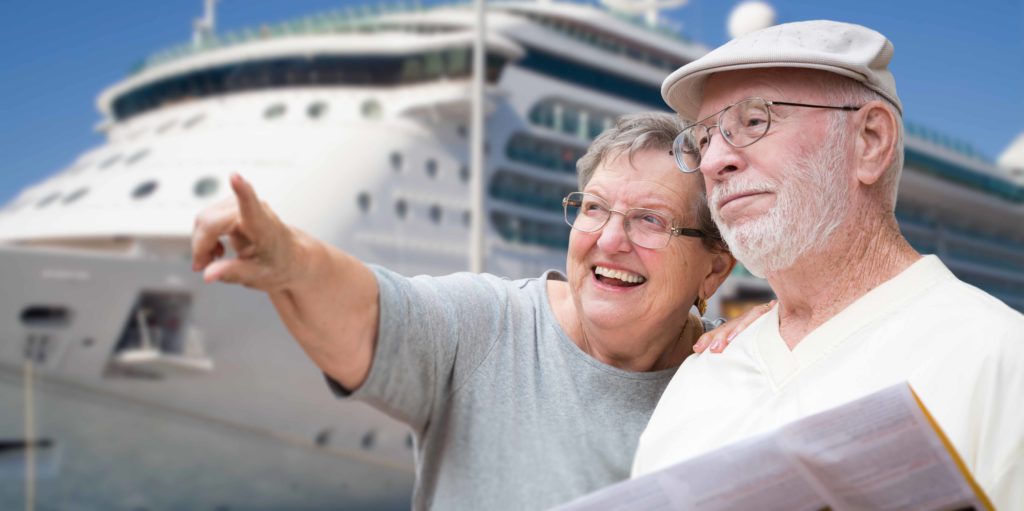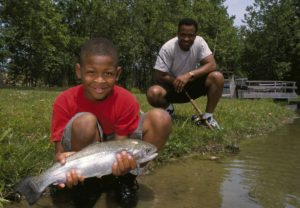
Neuroendocrine cancer patients traveling for pleasure, business, or cancer treatment, may need to consider a few extra details to ensure travel goes smoothly. These travel tips for NET cancer patients can help you plan a happy, healthy, and safe trip.
Planning for travel with cancer
Medical documentation to bring
- Insurance cards.
- Copy of prescriptions. Bring an extra copy of your prescriptions in case your medication is lost, stolen, or damaged.
- Physician letter. Get a letter (on letterhead) from your doctor on the medical necessity of any carry-on NET treatments (especially important for controlled substances, medical devices/implants, oxygen, injection needles, or medical equipment). You may need to show this letter to airport security, border, or customs officials.
- Medical history. Print out a copy of your medical records including diagnosis, recent treatment, and medication. Airport radiation scanners may detect residual energy in your body from nuclear medicine treatment. If that happens, you will want to disclose your treatment history to airport security. Some Medical ID bracelets (e.g., Medic Alert or Road iD) allow you to store medical history and insurance information online so it can be accessed by emergency responders or other officials.
- Contact info. Take along contact info for your treatment team and know who to contact for routine questions and for emergencies.
Health insurance for travel
Check with your health insurance provider to determine what services may or may not be covered during your trip, especially when traveling internationally. Even when a resort or cruise ship has medical staff, medical care may not be included in your package price. Therefore, you may need to consider supplemental insurance.
There are three types of policies: travel insurance, travel health insurance, and medical evacuation insurance. These insurance policies can be purchased before a trip to provide coverage in the event of an illness or injury.
The above policies are different than trip insurance, which protects financial expenses incurred in travel planning, such as the cost of flights, cruises, or train tickets, in case your schedule changes or you have to cancel.
Packing essentials for travel during cancer treatment
Make sure you’ve packed these items.
- Enough medication for your travel days, plus a few extra days in case you experience any delays. Keep your medication in its original packaging. Pack medication and medical supplies in a carry-on bag. Use cooling packs to comply with medication storage instructions.
- Extra medical supplies. Bring extra batteries, spare parts, and electrical adapters for any medical equipment you use.
- Hand sanitizer for use before eating or drinking.
- Insect repellant with DEET to prevent mosquito- and tick-borne illnesses.
- Sunscreen (UVA/UVB 30 SPF or higher), a wide-brimmed hat, and sunglasses.
Find more packing tips here: https://wwwnc.cdc.gov/travel/page/pack-smart#travelhealthkit
Look for comfort, assistance
- Select airplane, bus, or train seating with ample legroom. Aisle seats may make it easier to move around every few hours when you must sit for extended periods.
- Look for reclining seats for increased comfort.
- Take advantage of passenger support and convenience services to minimize walking and lifting. Use a wheelchair to get around airports. Board aircraft early with assistance. If you think you will need access to handicap seating, parking, or other supports during your travel, ask your doctor how to apply for a placard.
- Notify airport security of your medical condition and inform screeners if you have injectable medication supplies and storage tools, implants, devices, or radioactive medications. You may qualify for special assistance during the security screening.
International travel
International travelers should learn about accessing health care abroad, travel health insurance issues, traveling with medicine, be informed about their destination, know how to locate a US Embassy, and learn about common travel issues.
Prevent travel-related diarrhea
Diarrhea is the most common travel-related illness, which in an unwelcome risk for those living with neuroendocrine cancer. The Centers for Disease Control reports it can occur anywhere, but the highest-risk destinations are Asia (except for Japan), Middle East, Africa, Mexico, and Central and South America.
To protect yourself, keep your hands clean. Wash your hands frequently and thoroughly. Carry hand sanitizer with you when you are out and about. Keep your hands away from your mouth.
Exercise caution with food and water when you visit places where water quality can vary.
- Use sealed bottled water for drinking, taking medication, and brushing teeth.
- Don’t use ice in your beverages.
- Avoid food that has been exposed to flies.
Tips to avoid food-borne illness while traveling
Eat
Food that is freshly and thoroughly cooked and served hot.
Food from sealed packages.
Hard-cooked eggs.
Fruits and vegetables you have washed in safe water or peeled yourself.
Pasteurized dairy products.
Don’t Eat
Food on salad bars or buffets.
Food from street vendors.
Raw or soft-cooked (runny) eggs.
Raw or undercooked (rare) meat or fish.
Unwashed or unpeeled raw fruits and vegetables.
Condiments (such as salsa) made with fresh ingredients.
Salads.
Flavored ice or popsicles.
Unpasteurized dairy products.
Bushmeat (monkeys, bats, or other wild game).
Drink
Water, sodas, or sports drinks that are bottled and sealed (carbonated is safer).
Water that has been disinfected (boiled, filtered, treated).
Ice made with bottled or disinfected water.
Hot coffee or tea.
Pasteurized milk.
Don’t Drink
Tap or well water.
Fountain soda drinks.
Drinks made with tap or well water (such as reconstituted juice).
Unpasteurized milk.
Open dairy products left out for use with coffee or tea.
Enjoy yourself
Getting all these details worked out ahead of time, can free you up to focus on enjoying your travels. Here are a few tips for making the most of your trip.
- Find simple, small pleasures as often as you can.
- Try new experiences.
- Plan a balanced mix of activities that are quiet and relaxing activities (i.e., reading, resting) and ones that are stimulating and social (i.e., meals, entertainment).
- Avoid day-to-day chores, like cooking, cleaning, laundry. Figure out how someone else can provide those services.
- End with a bang. Splurge on a luxury item or activity toward the end of your stay to create a long-lasting, positive memory.
- Limit work calls and email while vacationing.
- Slowly ease back into work and household responsibilities by giving yourself some transition time upon your return.
 Remember the good times. Post the photos of the good times on social media and tell your friends and families about your favorite memories. Leave the less-than-fun experiences, like airport delays, in the past to be forgotten.
Remember the good times. Post the photos of the good times on social media and tell your friends and families about your favorite memories. Leave the less-than-fun experiences, like airport delays, in the past to be forgotten.
References
Centers for Disease Control. Travelers health: food and water safety. https://wwwnc.cdc.gov/travel/page/food-water-safety. Accessed June 28, 2019.
Perdue C, Noble S. Foreign travel for advanced cancer patients: a guide for healthcare professionals. Postgrad Med J. 2007;83(981):437–444. doi:10.1136/pgmj.2006.054593.
Vanderkam, L. The scientifically proven way to have the best vacation ever. Fast Company. July 24, 2015. Accessed July 12, 2019.

